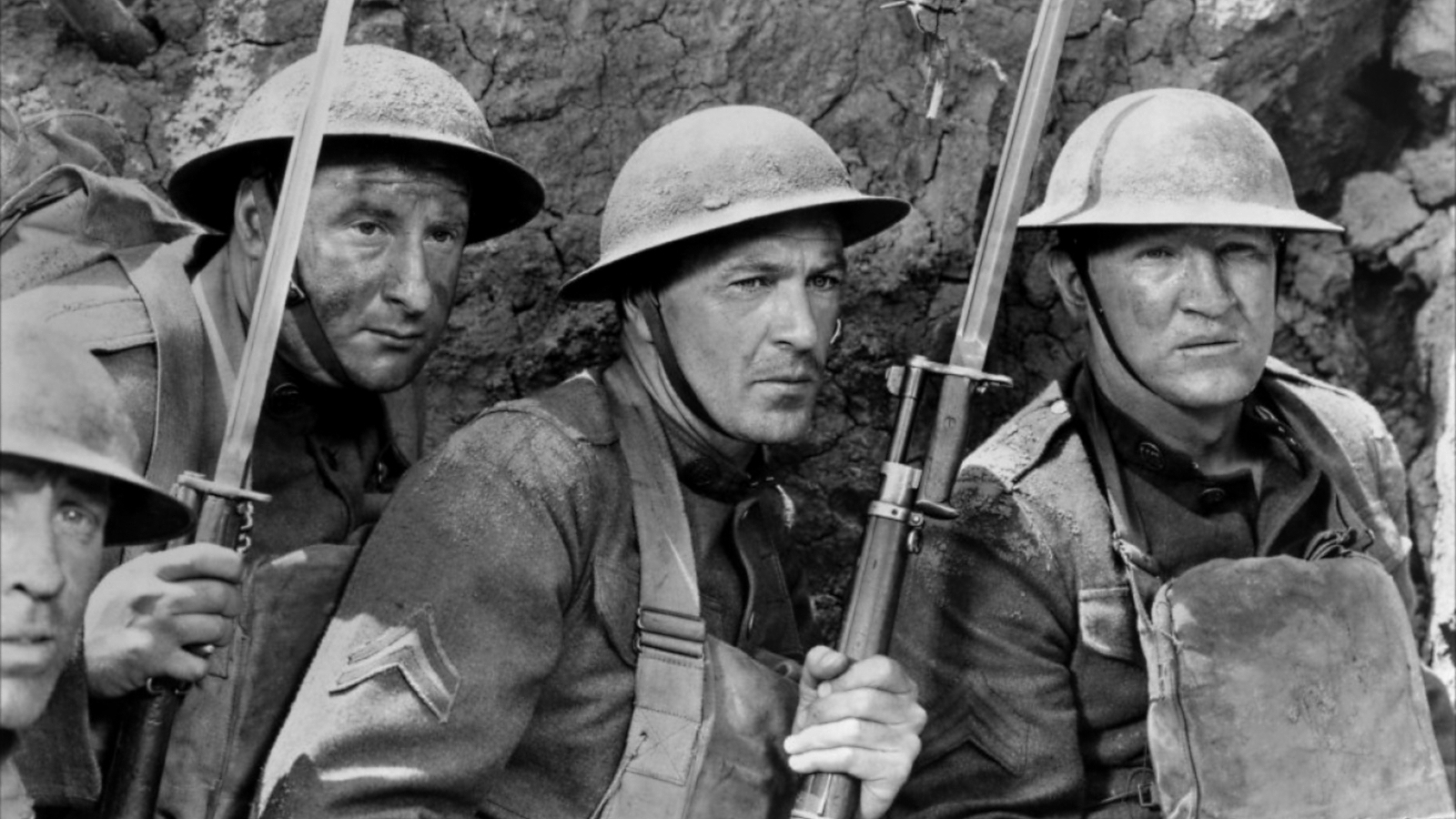Sergeant York premiered in July 1941. Consider the US’s situation at the time: Germany in control of most of Europe and a month into its invasion of the Soviet Union, an invasion sure to result in the destruction of Russia; Japan intractable in its ongoing rape of China; Britain begging for help; and the United States a nominally Christian country in which over 90% of the population favor neutrality and nonintervention. What message could resonate more at that time than that the responsible use of violence to defend others is a duty?
Indeed, the message was controversial—Sergeant York was unpopular in die-hard non-interventionist circles—but struck home. By the end of the year, Japan had attacked Pearl Harbor and the United States was at war. Alvin York himself volunteered to reenlist, but more than two decades past his actions in the Meuse-Argonne Offensive, overweight, and pre-diabetic, he was rejected for combat duty. He did tour training camps, sell war bonds, and promote the war effort, but the film Sergeant York was his real contribution. Gen. Matthew Ridgway, who commanded the 82nd Airborne Division in World War II and later attended York’s funeral on behalf of President Lyndon Johnson, said that York helped convince raw recruits “that an aggressive soldier, well-trained and well-armed, can fight his way out of any situation.”
Sergeant York was the highest grossing movie of 1941 and was nominated for eleven Oscars, winning two—including Best Actor for Cooper. Nevertheless, Sergeant York has its detractors, as I’ve hinted above. During the Vietnam War, the campus left, missing York’s own apparent ambivalence about his actions at the end of the movie, viewed the film with obvious suspicion, and it is, according to York biographer David Lee, often viewed by film critics as one of Hawks’s few failures. The reasons can only be ideological. Despite some misgivings accumulated over the nearly 80 years since, the film has remained popular, and when I ask classrooms full of students if they have heard of him or the movie, there’s usually at least once who has.
I find as an educator that showing parts of the film is useful as an accurate, intense, realistic depiction of World War I that won’t have students puking in the aisles. It’s also a useful callback for when I do reach the beginning of World War II in my lectures, and I have my students consider the timing of the film’s release. Sergeant York involves them in its story the first time around, and in considering it again later—with the larger issues of neutrality and “America First,” just war, and the threat of total and then atomic war in the mix—it always provides food for thought. And I find it particularly resonates with Christian students who want to think carefully about such issues.
Alvin York, I think, would have approved. In his own words, “I do not care to be remembered as a warrior but as one who helped others to Christ.”
More if you’re interested




















